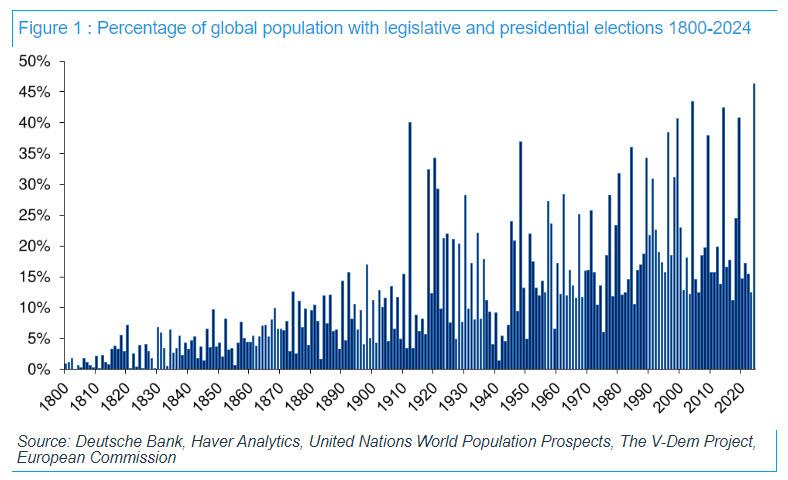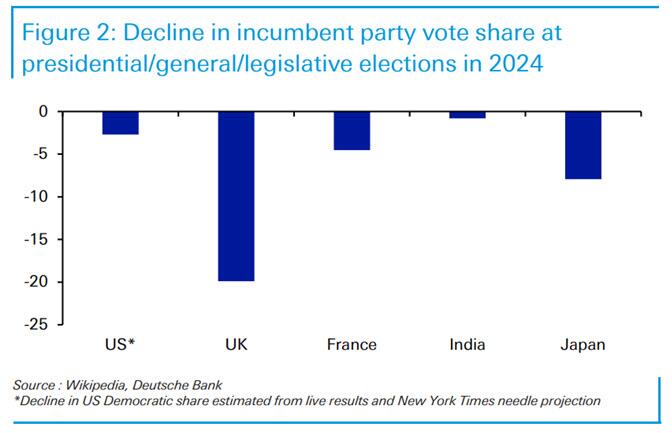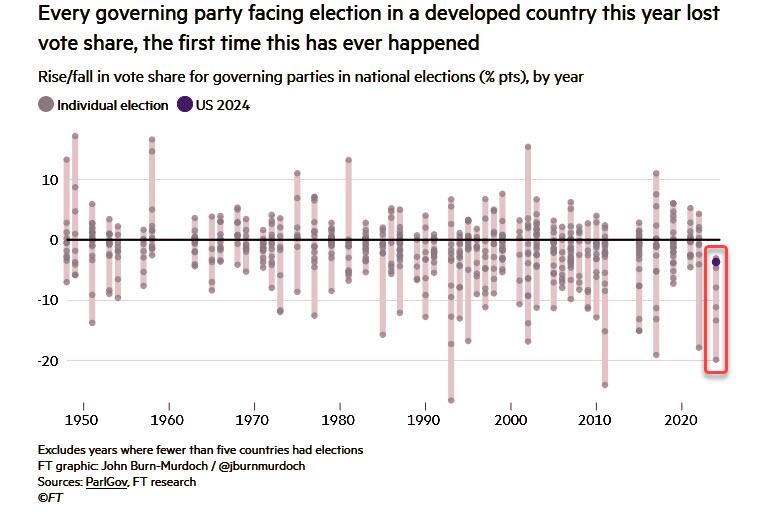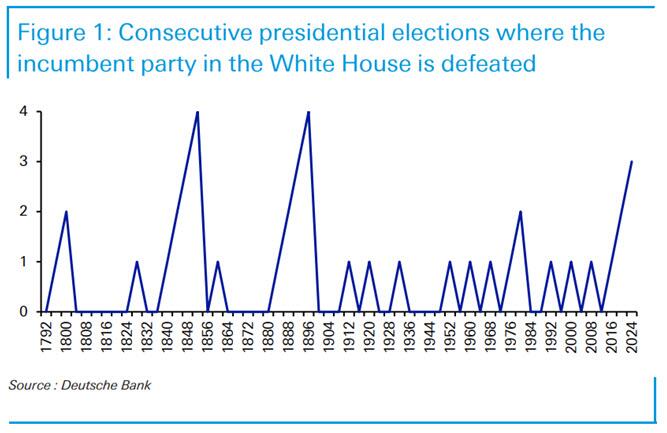from ZeroHedge:

Almost exactly one year ago, we wrote that 2024 would be the busiest political year on record…
…. and it certainly has delivered, including these main highlights.
- The Taiwanese election in January 2024
- Indian elections in April/May
- European Parliamentary elections in June
- The US Presidential Election in November.
So with the main events of 2024 now in the rearview mirror we can conclude that this has been a catastrophic year for incumbents at elections.
TRUTH LIVES on at https://sgtreport.tv/
And not just in the US where Democrats have lost ground relative to four years earlier, but incumbents have also lost ground in the UK, France, India, Japan and South Africa as well this year.
It gets worse: an even more amazing stat comes from the FT, which reports that every governing party facing election in a developed country this year lost vote share, the first time this has ever happened!
According to Deutsche Bank, it’s also the first time since the late 1800s that the incumbent party in the White House has lost three consecutive presidential elections.
A fascinating stat. So why is this happening across the world? Accord to Jim Reid there are three things going on:
- The economy is a big factor for most if not all countries here, and growth has slowed down relative to previous decades. That’s left voters disappointed, having not seen gains in their living standards that they’d previously been used to. Even though growth is stronger in the US, voters have not tended to suggest this when polled, and have certainly highlighted inflation and the cost of living as a big issue.
- Immigration. Many voters have been concerned that incumbents have no solution to their concerns over migration.
- Selected mismanagement claims and domestic scandals. This is clearly not the case everywhere, but it’s cost incumbents in several countries.
- Voters in general have become much more willing to change their vote from election to election. A smaller share of the electorate vote the same way all the time, meaning it’s easier to see big swings from one election to the next, as there’s now more swing voters up for grabs.
Overall, it feels like voters have ignored the extremely generous handouts after Covid – which ultimately sparked the biggest inflationary tsunami in 40 years – and instead focused on the costs of these in the aftermath. The top cost likely being inflation, and although it’s fallen back now, voters experience this on a cumulative basis, rather than a 12-month basis as economists often analyze.






